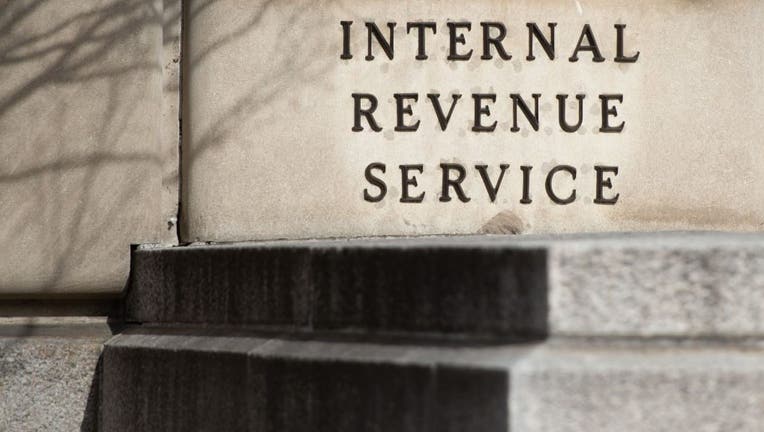IRS tax refunds for $10,200 unemployment break to start in May: What you need to know

The US Internal Revenue Service (IRS) building in Washington, DC, Jan. 28, 2019. (Photo credit should read SAUL LOEB/AFP via Getty Images)
The Internal Revenue Service will start issuing tax refunds in May to Americans who already filed their returns but are eligible to take advantage of a new break on unemployment benefits.
The $1.9 trillion coronavirus stimulus plan that President Biden signed into law in March, known as the American Rescue Plan, waives federal income taxes on up to $10,200 in 2020 unemployment insurance benefits for individuals who earn less than $150,000 a year, potentially saving out-of-work Americans thousands of dollars from a surprise tax hit.
Workers can exclude the aid when calculating their modified adjusted gross income — meaning that an individual who earned $140,000 last year but collected $10,200 in jobless aid is still eligible to take advantage of the tax break. The break applies to this tax-filing season, which began Feb. 12 and ends May 17.
But some Americans who had filed their taxes before Biden signed the stimulus bill were left wondering whether they needed to file an amended return in order to claim the return. The IRS advised them to not file another return and promised to issue additional guidance about what to do.
On Wednesday, the agency confirmed that it will automatically issue refunds to eligible taxpayers.
"Because the change occurred after some people filed their taxes, the IRS will take steps in the spring and summer to make the appropriate change to their return, which may result in a refund," the IRS said. "The first refunds are expected to be made in May and will continue into the summer."
The agency said it will do the recalculation in two phases, beginning with taxpayers who are eligible for the $10,200 exclusion. It will then proceed to calculate the new refund for married couples who are eligible for the $20,400 exclusion and other more complex returns.
"There is no need for taxpayers to file an amended return unless the calculations make the taxpayer newly eligible for additional federal credits and deductions not already included on the original tax return," the agency said.
It's still unclear whether states that count unemployment benefits as taxable income will waive the levy this year, too, and adhere to federal guidelines. Alabama, California, Montana, New Jersey, Pennsylvania and Virginia are the only ones to completely exempt it.
The federal government and most states count unemployment benefits, including the extra money distributed through federal aid programs, as taxable income. But unlike a typical paycheck, taxes aren't automatically deducted from jobless aid, creating a potential for refund shock for millions of out-of-work Americans even though they lost their job.
You do not have to pay Social Security and Medicare taxes on your unemployment benefits.
About 40 million people collected jobless aid last year, according to The Century Foundation. The average person received $14,000 in benefits.
Read more at FOXBusiness.com.

Unemployment, stimulus questions swirl amid tax season
Between stimulus checks and extended unemployment, 2020 was not a normal year for taxpayers, making for unique ways to save money, too.
Featured
Business, jobs bounce back in Wisconsin after challenging year
Wisconsin jobs are coming back one year after the COVID-19 shutdown; the state's unemployment rate is close to where it was pre-pandemic.


